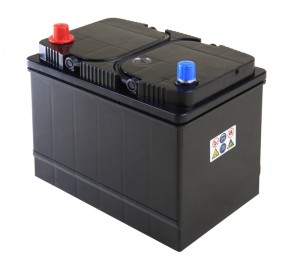Posted on 9/2/2014

It may seem like summer was just here and already we’re saying hello to Christmas and winter weather. And with snow and ice brings driving in snow and ice and that can be an unnerving, and potentially dangerous, experience. But knowing how to handle a car on icy roads can keep you and your family safe on the way to grandma’s house. First of all keeping your car in good shape is critical to safe driving in winter. Good tires with proper pressure, relatively new windshield wiper blades and a full washer reservoir will help when the snow, ice and slush start to fall. An emergency kit is also a good idea if you plan to drive a long distance on the highway. Clean your car before you head out. Sweep off snow and scrape ice from the entire surface of your car before you drive away. Flying ice and snow can be hazardous for other drivers around you. And now you’re driving and condi ... read more
Posted on 9/2/2014
Even though we haven’t seen much snow this winter we’ve seen some cold temperatures. So it’s important that the antifreeze in your car be mixed correctly. So who better to ask than The Car Talk guys to get the absolute gospel about all things antifreeze. For most areas you’ll need a 50/50 mix of coolant to water. Don’t be tempted to try 100% because it will freeze, it won’t transfer heat away from and may even harm your engine. Here’s a little diagram to help: Protection Freeze-up Protection Boilover Protection Corrosion Protection Minimum 50% anti-freeze 50% Water -34ºF +265ºF Exceeds all ASTM and SAE standards for corrosion protection Maximum 70% anti-freeze 30% Water -84ºF +276ºF If you’re unsure about the existing mixture of coolant there’s a handy little device that you can buy from an auto parts store. It sucks up a little bit of coolant from the radiator o ... read more
Posted on 9/2/2014

On January 23, 1971 the town of Prospect Creek recorded Alaska’s and the United States’ coldest temperature of 79.8 below zero. So far it’s the lowest recorded temperature anywhere in the country. Which means things were probably running pretty slow from the faucets to the citizens. But what about the cars? Granted back then the quality of engines and the quality of coolant wasn’t up to modern standards but suppose that temperature was recorded today. Would the gas in your car freeze? Here’s some science for you from the Department of Physics at the University of Illinois at Urbana-Champaign: Gasoline doesn’t really have just one freezing temperature, and in fact, gasoline isn’t made out of just one kind of molecule, but many different hydrocarbons. If you get it cold enough, it will get pretty hard. Freezing is a phase cha ... read more
Posted on 9/2/2014

“How long should the battery in my car last?” That’s a question we get asked a lot. The average car battery can last between 3-5 years, but the actual life of your battery depends on several factors. The quality of the battery when first purchased. You don’t have to spend a fortune, but don’t be cheap about it. How well you maintain it. Battery maintenance goes a long way toward longer life. Include your battery on your checklist whenever you take your car in for routine check ups. Don’t forget the cables and terminals and keep them clean. The weather. Check the top of your battery to see the temperature specifications. If you live in a cold climate make sure you purchase one intended for your area. Cold weather reduces the cranking power of your battery so an older battery will experience more issues in the winter than a new one. Car batteries can even freeze and explode so if you think your battery is fro ... read more
Posted on 9/2/2014
While we realize that nobody enjoys spending their hard-earned cash on tires, it’s one of the critical functions of car care and car maintenance. While forking over some hard-earned dough for tires may be difficult, it’s well worth the alternative of having an accident, hydroplaning, or getting a flat tire because of poor tire maintenance. While just about every driver knows that tires must be cared for (like aired up and all…) many don’t know the signs of tire wear, and when they’re in need of replacement. So here are some helpful, easy tests, for knowing when your tires need replaced. Test #1 – Test the steering. While it can be a slight difference, if your car is having a difficult time steering or navigating the roads, it might be an indication that your tires need replaced – or at least balanced. Test #2 – Are you Hydroplaning? One of the number one purposes of car tires is to (yes keep the ca ... read more